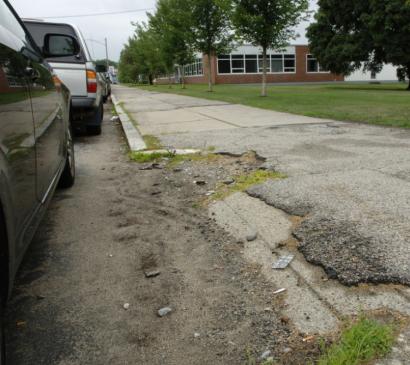czsz
Senior Member
- Joined
- Jan 12, 2007
- Messages
- 6,043
- Reaction score
- 7
Globe columnist dishes to Harvard, NIMBYs on architecture:
She's becoming a real thorn in the side of the provincial elements that have held sway over this city. I like that.
Think outside the yard
By Yvonne Abraham, Globe Columnist | August 15, 2007
CAMBRIDGE -- Stroll west on Vassar Street and look at all of the architecturally adventurous gifts MIT has given us.
The Stata Center, the topsy-turvy Frank Gehry building, has received plenty of attention. But the limestone and glass McGovern Institute for Brain Research, as serene and minimalist as the Stata is crazy and jumbled, is no less edgy.
The new Zesiger Sports and Fitness Center blends beautifully with the still-amazing, Eero Saarinen-designed MIT Chapel, where reflections from its moat have dappled the undulating brick walls since 1955. And the gorgeous, wave-like Alvar Aalto Baker House is still incredibly striking after more than a half-century.
Farther down the street you'll find Stephen Holl's magnificent new Simmons Hall, the dorm that looks like a sponge.
Great architecture, like great art or a great burger, is a subjective thing. And not everybody loves everything MIT has done with its buildings over the years.
But like it or no, they're doing what all great universities should do when they expand: draw on the greatest minds of each generation, take risks, push the public's limits.
Are you listening, Harvard?
Over the next 50 years, the university will remake a big chunk of a city that is often allergic to architectural innovation. It's a chance for the nation's oldest university to do something brave with the 200-plus acres it owns in Allston.
But they must contend with two things MIT doesn't appear to have encountered: conservative faculty members who prefer red-brick, Georgian reproduction to real innovation and active, suspicious neighbors.
Faced with those factors, Harvard has whiffed in the recent past.
The Spangler Center at Harvard Business School, completed in 2001, is a riot of retro, a slave to that thing they did so well over there at Harvard Yard -- in the 18th century.
Cambridge neighbors scuttled a proposal to build a museum of modern art on Memorial Drive that would have been designed by one of the world's greatest architects, Renzo Piano. The museum would cut them off from the Charles, they argued. Piano made modifications. No dice. Now they're getting taller graduate housing instead.
Across the river at One Western Avenue, the university's graduate housing complex of multihued brick and irregular windows was met with scathing criticism by neighbors and architects when it opened in 2003. Harvard was stung by the reception.
Paul Berkeley, president of the Allston Civic Association, said Harvard ultimately apologized for building something so many people hated. "At meetings, the [Harvard] people said they never again wanted to present a project that would be so disliked by the neighborhood," he said.
Nobody can blame the community for wanting to keep a close eye on Harvard. Using a third party to buy up acres of Allston in the 1990s, the school didn't endear itself to future neighbors.
Those neighbors can, and should, hold Harvard's feet to the fire on open space and benefits for the community. But they shouldn't be allowed to stifle innovation.
So far, Harvard has made a great start in Allston, having chosen interesting designs for the first two buildings planned for the new campus.
Berkeley says he's OK with the edgy proposals for the new science complex, by the German firm Behnisch Architects, and for the relocated art museum, designed by Daly, Genik of California.
But the Allston activist doesn't want too edgy. No Gehry, say.
"Some of those buildings over there at MIT are just plain ugly," he says. "That one that has the curved walls coming out, I don't get anything out of it, and I don't want to see them going that far."
Sure, the Gehry building is controversial. But so were other radical-for-their-time but now-beloved buildings at both Harvard and MIT.
History should ultimately decide these things. Not neighbors.
She's becoming a real thorn in the side of the provincial elements that have held sway over this city. I like that.




